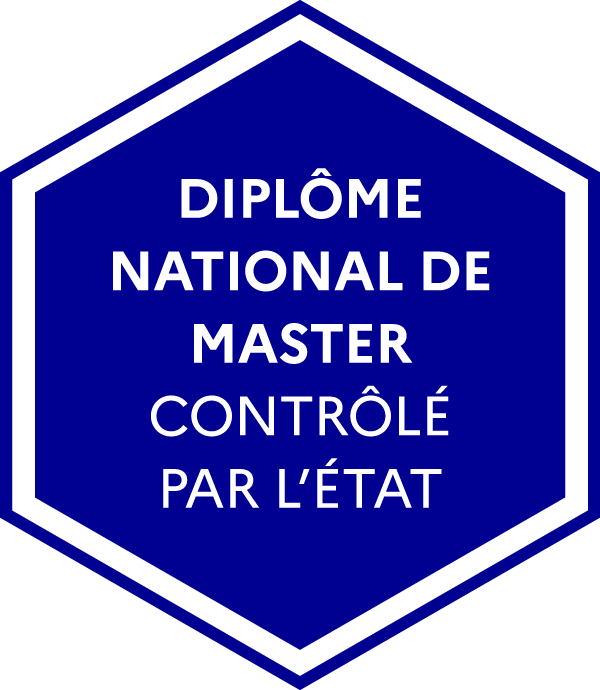Objectives
The International Master in Atmosphere, Ocean and Climate Science provides students with the knowledge and skills needed to work in the field of ocean, atmosphere and climate science. It provides an interface between physics, chemistry and applied sciences, with the aim of responding to the questioning posed by the major societal challenges of climate and the atmosphere.
This master's degree aims to:
- Acquire knowledge and skills in several disciplines to better understand small- and large-scale processes in the atmosphere and oceans.
- Study and analyze the interactions between these processes and their impact on climate change.
- Learn measurement techniques and understand the importance of observation in modeling the atmosphere, oceans and climate.
The master's degree is offered in partnership with Université Claude Bernard Lyon 1, so teaching is shared between the Écully site (Centrale Lyon) and the La Doua site (Lyon 1).
Program
The Atmosphere, Ocean and Climate Science master's degree is organized in four semesters and culminates in a six-month research internship. The program focuses on teaching fundamental processes in physics, chemistry and applied sciences, essential for the study of atmosphere and climate. This gives it a high level of recognition among players in the field, in both academic and industrial research.
Three options are offered:
- Water and ocean sciences
- Atmospheric sciences
- Climate sciences
Semesters 1 and 2 (common to all three options)
Building on the knowledge acquired in the bachelor's degree, students are introduced to the basics of atmospheric and climate sciences. Practical work (TP) and digital programming play a central role in each teaching unit.
Reinforcements, refresher courses and in-depth studies are offered in mathematics and digital programming (Python). Two level groups, beginner and advanced, are set up in mathematics and programming, so that everyone can progress at their own pace.
Common scientific teaching units
- Atmospheric physics
- Climate physics
- Fluid mechanics
- Multi-scale reactivity (chemical kinetics)
- Mathematical methods
- Digital programming
Transversal teaching units
- Learning the scientific writing method, help in finding internships
Common scientific teaching units
- Atmospheric chemistry
- Fundamentals of spectroscopy
- Introduction to meteorology and oceanography
- Geographic information systems
- Two elective courses, to choose from: Physics and modeling of free-surface flows | Space physics and solar-terrestrial coupling | Chaos and fractals | Physico-chemical kinetics in heterogeneous media | Water physics | Water chemistry | Numerical methods and computer science
Transversal teaching units
- Research project (3 months)
- Languages (French/English)
Semesters 3 and 4 (depending on option chosen)
The "water and ocean sciences" option covers the fundamentals of the physical chemistry of water and the ocean, ocean currents and the ocean's interactions with the coastline, cryosphere and atmosphere. The fourth semester is devoted to application with a research internship in a laboratory or industry.
Common scientific teaching units
- Water physics
- Water chemistry
- Oceanography
- Interactions between atmosphere, ocean and ice
- Remote sensing
- Laboratory experiments: LIDAR; Mass transfer; Wave turbulence; Electrolysis ...
Elective teaching units
Options: Ocean and coastal engineering; Hydrology and hydrogeology ...
Cross-disciplinary teaching units
- English M2
- Professional integration
- Master's project
Research internship in a laboratory or company (6 months).
The "Atmospheric Sciences" option trains students in the physical and chemical processes of the atmosphere, as well as atmospheric observation and metrology techniques. This specialization develops skills in pollution management, environmental risks and legislation, preparing students for careers in climatology, meteorology, and environmental risk management.
Common scientific teaching units
- Chimistry of the atmosphere
- Physics of the atmosphere
- Observation of the atmosphere and instrumentation
- Atmospheric boundary layer
- From catalysis to industrial applications industrial applications
- Laboratory experiments
Elective teaching units
Atmospheric engineering option
Cross-disciplinary teaching units
- English
- Professional integration
- Master's project
Research internship in a laboratory or company (6 months)
The "climate science" option aims to train students for careers linked to the quantitative assessment of the fundamental processes involved in climate change, the associated risks and their socio-economic impacts, taking into account coastal, continental and overseas infrastructures. Job opportunities can be found in public and private research laboratories, institutions, SMEs and large reinsurance groups. As such, this pathway offers students in-depth expertise in modeling physical and fluidic processes, applied to the study of climate and its spatial and temporal variations, under real-life or laboratory conditions.
Common scientific teaching units
- Physics of the atmosphere
- Radiative transfer
- Interactions between the atmosphere and the ocean
- Meteorology and atmospheric dynamics
- Remote sensing
- Laboratory experiences laboratory experiments
Elective teaching units
Climate modeling option
Transversal teaching units
- English
- Professional integration
- Master's project
Research internship in a laboratory or company (6 months)
.
Diploma and certification
This course awards a national master's degree - controlled by the State.


Admission requirements and application
Pre-requisites
- Master 1: Bachelor's degree or bachelor's degree in a scientific subject related to the Master's topics.
- Master 2: Successful M1 in a subject related to the Master's topics. English level B2.
Application
Applications are considered on the basis of a portfolio.
Tuition fees
Acknowledging and anticipating your expenses is essential before committing to a training course with confidence.
